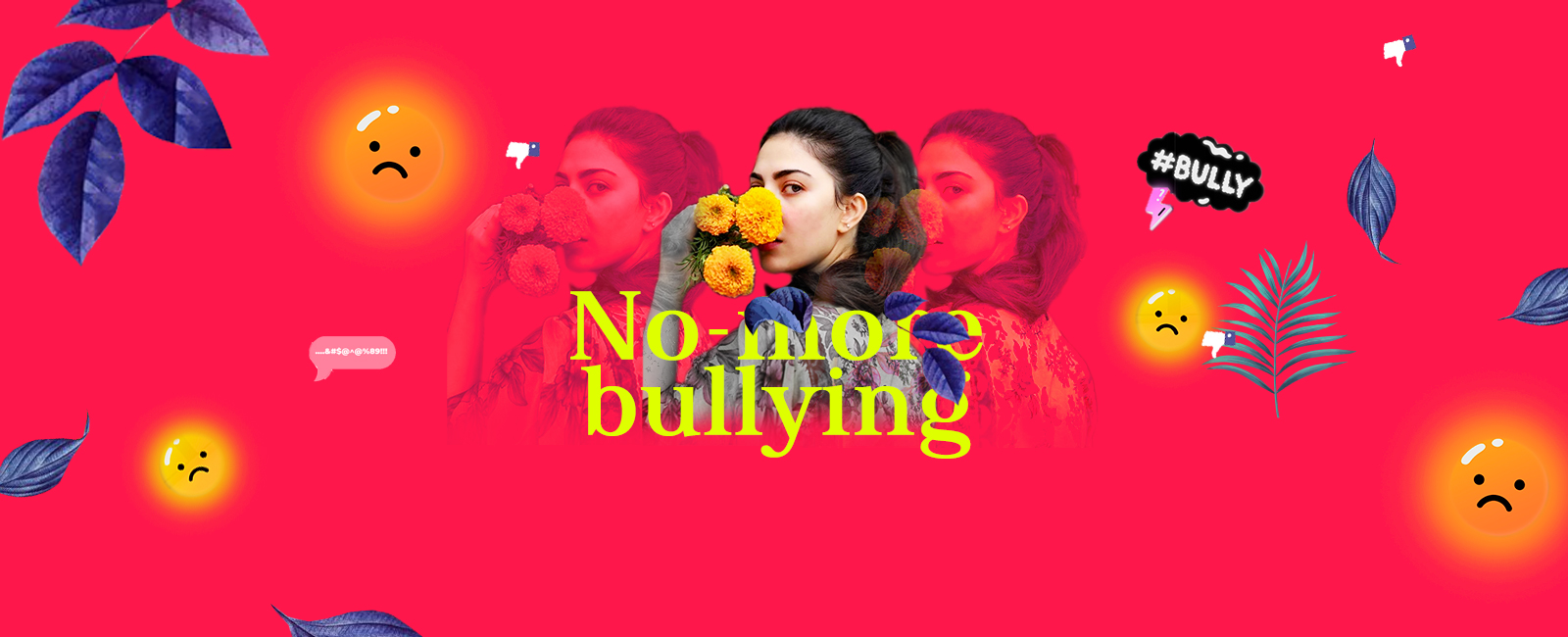The worrying trend of cyberbullying: Why netizens need some serious soul-searching
Much-loved celebrity Naimal Khawar found herself at receiving end of harsh criticism when her fashion photoshoot went viral

In this digital age, we must admit that social media has become an inevitable part of our lives. In fact, it's now a window into one's life — a directory of where we go, what we do, what we eat — depending on to what extent one wishes to share their experiences with the rest.
I, too, use Instagram and Snapchat frequently, both of which are photo-sharing platforms. While I quite enjoy using these applications, what I have noticed of late is that there's a growing inclination among users to go after 'perfection' and replicate the perfect life and appearance just as we see in the pictures on our feeds.
Most, if not all, of us want to look perfect. But what I find more disturbing are the reactions on social media when another person fails to match our idea of perfection. The commentary on their appearance is not just critical, but often times hateful and derogatory.
This behaviour classifies as cyberbullying, a form of cybercrime.
Yet, perusing comments on social media posts, it's not uncommon for me to come across remarks that are critical of a person's appearance; on social, you will hardly ever get appreciated for being yourself and rather criticised, to put it politely, for failing to meet the standards of beauty and acceptable appearance set by others.
It doesn't matter if you are a celebrity, an influencer or an unknown. If you are on social media, some users believe it's their national responsibility to school you for not looking the way they deem acceptable. And you are more likely to have to deal with this behaviour if you are a celebrity.
Recently, Pakistani actor and model Naimal Khawar faced severe criticism on social media for having allegedly undergone rhinoplasty — a cosmetic surgery to improve the appearance of your nose — and dermal fillers to be specific.
Naimal's first appearance in the media was in the film Verna, and she rose to prominence for her role in the television drama Anaa. The actor, also a fine artist, became the most googled person in 2019 after tying the knot with actor Hamza Ali Abbasi. She was widely praised for her beauty and looks that many described as innocent.
But the much-loved celebrity received flak when her pictures from a fashion photoshoot were shared on social media recently. The love and appreciation she had been getting all these years were replaced by mean, even immoral, remarks about her appearance.
Netizens, after noting a change in her facial features, did not shy away from calling her "ugly" and thought it mandatory to the actor, or so they believed, that she had "ruined your face".
“Naimal” became a trend on Twitter, with users sharing her before-and-after photos. However, there is no confirmation yet of the actor having undergone the knife.
But even if it is true, celebrities around the world undergo different procedures for beauty enhancement. For example, thicker eyebrows are in fashion now, and several people are opting for eyebrow extensions or microblading.
And assuming this to be true, it's Naimal's choice. Why should she be criticised for deciding about her body and face?
Moreover, the human body, including the face, changes with time and as we grow older. It's natural.
In Naimal's case, I, too, was convinced for a while that she opted for plastic surgery, and rightfully so if it's true. But, there could also be a possibility of motherhood having to play a role in the change in her appearance, at least partially, if not entirely. During pregnancy and even after that, a woman's body undergoes several changes, one of the most common being having a fuller face.
Yet, Naimal faced severe criticism that made me uncomfortable after a point. If I was uncomfortable merely reading those comments about her, how would they have affected her mental health?
Naimal's case is just a recent instance of social media users feeling at liberty to dish out unnecessary and undue criticism.
Anushka Sharma’s infamous 'lip enhancement' drew the Indian actor harsh and brutal reactions and Pakistani actor Hania Aamir, too, wasn't spared when users deemed she had used lip fillers.
Aamir has denied the claim, but it's no one's business whether she actually used the fillers or not.
More recently, actor Ushna Shah came under fire. Social media users censured her for the way she dressed at her wedding among other “offences” people believed she had committed. Unlike Naimal, Shah chose not to remain silent and gave a strong response.
She became vocal about how “online bullying” had deeply affected her mental health, so she decided to take a break from social media.
Here, people need to understand that celebrities are public figures and not “public properties”. They simply can't be treated as people deem fit. They are humans just like any other person and they have feelings that can be hurt by mean remarks.
People need to stop judging and bullying them for their choices. No one has the right to bully or hurt anyone through their words. Instead, today, more than ever, we need to be kind.
Just for once, people should put themselves in others’ shoes and think how they would feel if they get the same treatment, publicly.
Mehreen Ansari is a staffer at Geo.tv. She tweets @MehreenAnsari17




